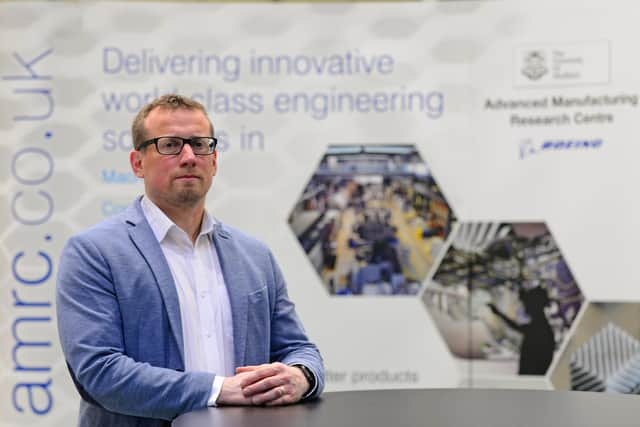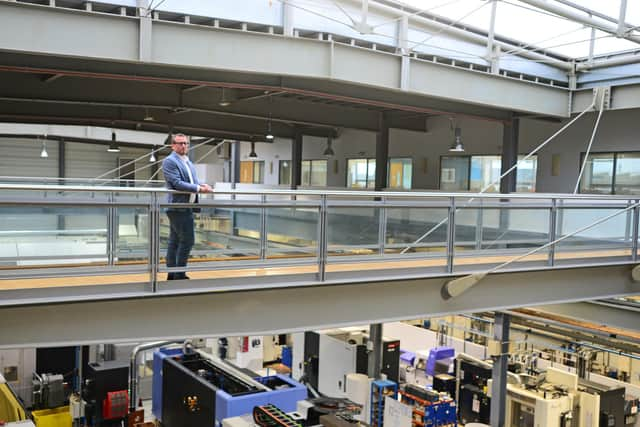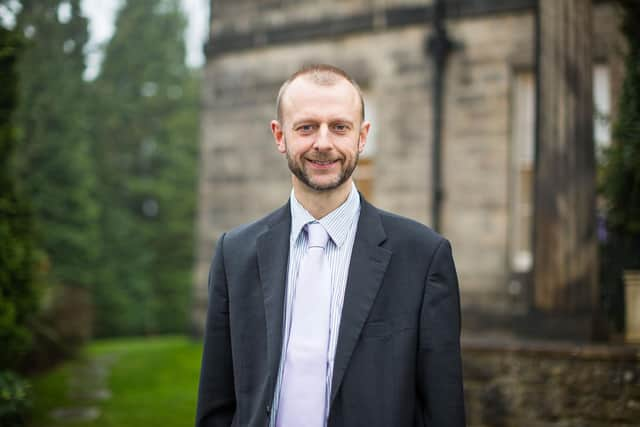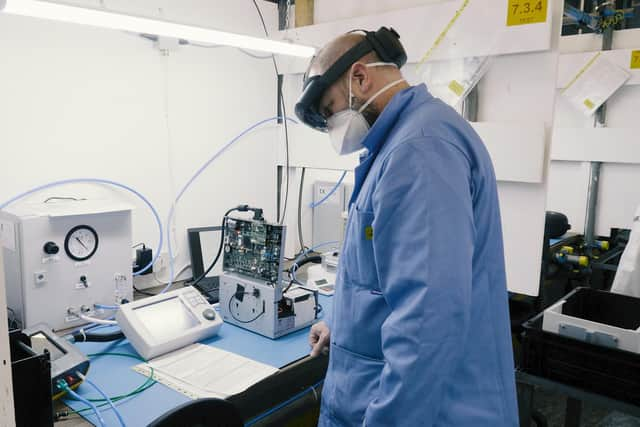AMRC is too big to be driven by one brain says new boss
and live on Freeview channel 276
Steve Foxley, said the Advanced Manufacturing Research Centre needed a ‘collective brain’ that involved all 600 staff.
And he insisted it would be more like the all-conquering New Zealand rugby team, the All Blacks, than a slow moving management by committee.
Advertisement
Hide AdAdvertisement
Hide AdMr Foxley has been executive director of the AMRC, part of the University of Sheffield, for four months.


He took over from co-founder Keith Ridgway who led it to international renown, partnerships with Boeing, McLaren and Rolls-Royce and helped the engineering department to top spot for research income, overtaking Imperial and Cambridge, with £124m. He retired in November.
Mr Foxley said he had long admired the AMRC and it was his dream job, but the way it was run would change.
He added: “The AMRC has now got to a size it can’t just be driven by Keith Ridgway’s brain or my brain, it’s got to be a collective brain of 600 people who are really clear on its strategy and purpose.
Advertisement
Hide AdAdvertisement
Hide Ad“It’s a philosophical change. I compare it to the All Blacks. If things change during a game they are not all looking to one person. There are several leaders on the pitch. Leadership can move between people.”


Founded on the former Orgreave Coking Works in 2001, the AMRC now has a dozen hi-tech buildings, 100 paying partners and satellites in Derby, Preston, Wales, the Wirral and Korea, as well as a training centre for hundreds of apprentices. More than 100 firms have moved nearby.
Mr Foxley joined from Siemens just before the pandemic struck.
Lockdown saw most staff working from home, he said, with a handful on site making hundreds of face shields for Sheffield hospitals, ventilator parts and reprogramming gaming headsets to fast-track training in how to assemble them.
Advertisement
Hide AdAdvertisement
Hide AdThis month, 40 were back working on critical projects and next month more are set to return, working shifts and social distancing.


He said: “It’s a challenging time but spirits are brilliant - passion and culture don’t change.”
A big focus will be helping manufacturers build resilience to disasters, using digital tools to analyse and strengthen supply chains, work more flexibly and train staff - all in a safe environment, he added.
“That’s where we want to lead. People have always had business continuity plans but the pandemic has shown weaknesses.”
Advertisement
Hide AdAdvertisement
Hide AdIn the Budget, just before lockdown, the government announced more than £1bn for research into space, fusion, electric cars and ‘lightweighting’, all of which could put work the AMRC’s way.


Another hi-tech neighbour was announced earlier this month. Broadband company Curvalux is setting up a £20m factory near the AMRC in a deal set to create 200 direct jobs and 1,000 in the supply chain.
But a critical period looms: the pandemic could see Chinese student numbers plummet, blowing a multi-million pound hole in university coffers.
Dave Petley, vice-president for research and innovation, has oversight of the AMRC and is Steve Foxley’s boss.
Advertisement
Hide AdAdvertisement
Hide AdHe said: “It’s no secret students are a very important part of university income. There is a good deal of uncertainty but the UK remains a very attractive place to study.”
He also dismissed talk of the AMRC going independent, as Keith Ridgway suggested following his departure.
Mr Petley said it would instead form closer ties with the rest of the university and carry out research for other departments, such as the medical faculty.
“The model at the moment is the right one. It has a firm base in the university and we see numerous opportunities that would be a huge advantage to us.”
Advertisement
Hide AdAdvertisement
Hide AdHe also brushed off the ‘heat and noise’ around Mr Ridgway’s departure.
“He retired, it’s as simple as that. He did a wonderful thing with the AMRC. He left us with something special that is of huge benefit to the university and Sheffield City Region and we are extremely grateful. But at some point there has to be a transition.
“Steve Foxley has my 100 per cent support in taking it forward.”